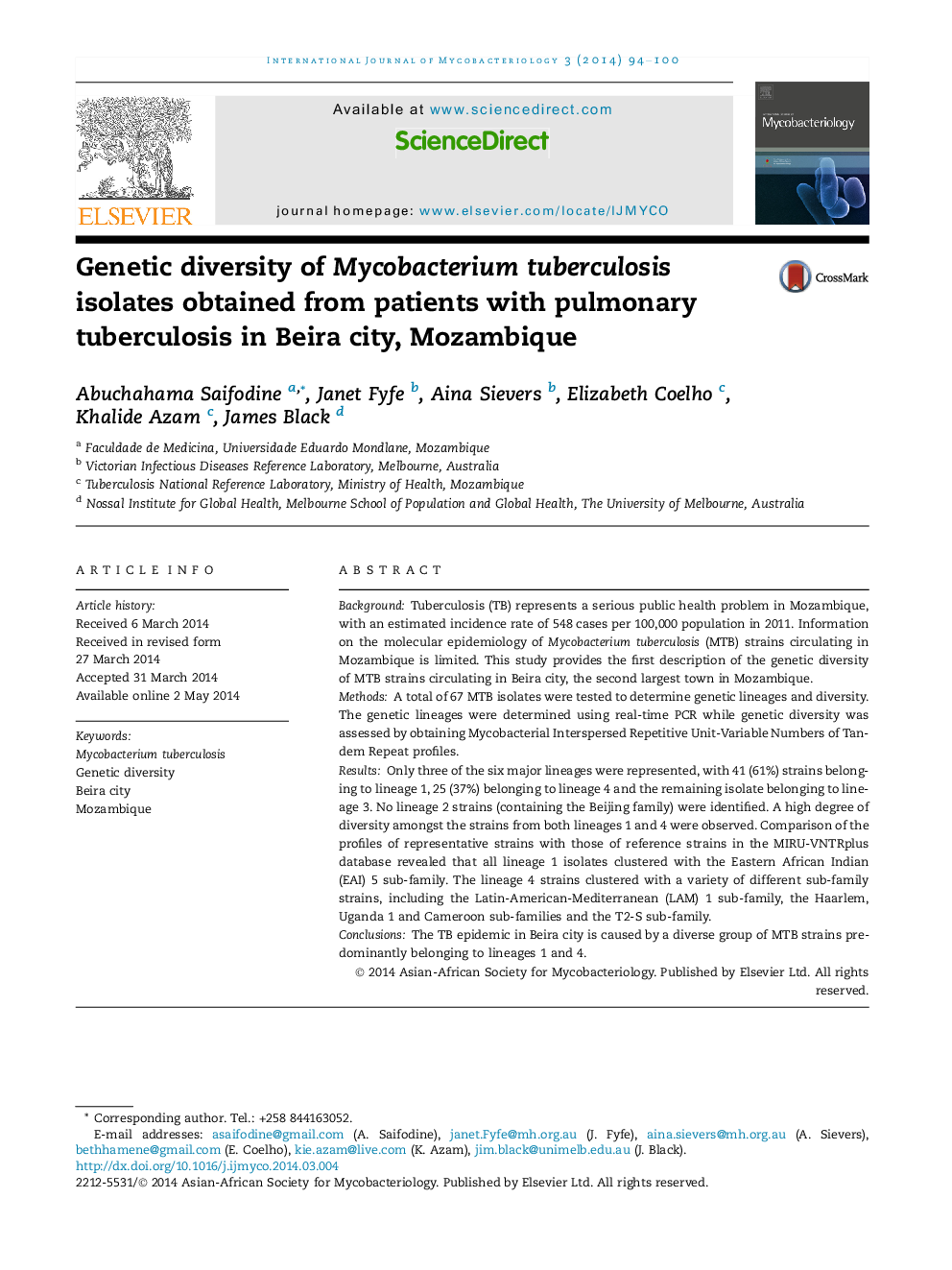| Article ID | Journal | Published Year | Pages | File Type |
|---|---|---|---|---|
| 3405293 | International Journal of Mycobacteriology | 2014 | 7 Pages |
BackgroundTuberculosis (TB) represents a serious public health problem in Mozambique, with an estimated incidence rate of 548 cases per 100,000 population in 2011. Information on the molecular epidemiology of Mycobacterium tuberculosis (MTB) strains circulating in Mozambique is limited. This study provides the first description of the genetic diversity of MTB strains circulating in Beira city, the second largest town in Mozambique.MethodsA total of 67 MTB isolates were tested to determine genetic lineages and diversity. The genetic lineages were determined using real-time PCR while genetic diversity was assessed by obtaining Mycobacterial Interspersed Repetitive Unit-Variable Numbers of Tandem Repeat profiles.ResultsOnly three of the six major lineages were represented, with 41 (61%) strains belonging to lineage 1, 25 (37%) belonging to lineage 4 and the remaining isolate belonging to lineage 3. No lineage 2 strains (containing the Beijing family) were identified. A high degree of diversity amongst the strains from both lineages 1 and 4 were observed. Comparison of the profiles of representative strains with those of reference strains in the MIRU-VNTRplus database revealed that all lineage 1 isolates clustered with the Eastern African Indian (EAI) 5 sub-family. The lineage 4 strains clustered with a variety of different sub-family strains, including the Latin-American-Mediterranean (LAM) 1 sub-family, the Haarlem, Uganda 1 and Cameroon sub-families and the T2-S sub-family.ConclusionsThe TB epidemic in Beira city is caused by a diverse group of MTB strains predominantly belonging to lineages 1 and 4.
